🇮🇳 Smart Tax Planning for Private Limited Companies in India
Applicable for FY 2024-25 | AY 2025-26 and FY 2025-26 | AY 2026-27
Tax planning is not just about saving money—it’s about strategic foresight and compliance. For a Private Limited Company in India, minimizing tax liability while staying within the legal framework requires intelligent use of deductions, exemptions, and proper documentation under the Income Tax Act, 1961. Here’s how your company can plan smarter.
🔑 Top Tax Saving Strategies
-
1️⃣ Draw a Reasonable Salary as Director
A director’s salary is a deductible expense for the company. At the personal level, it is taxed under the head ‘Salaries’, allowing you to leverage individual tax slabs. This reduces the company’s taxable income and is a tax-efficient way to compensate promoters actively involved in operations.
-
2️⃣ Pay Rent for Personal Property Used in Business
If your personal premises or assets (e.g., machinery) are used for company operations, the company can pay you rent, which is also deductible. You’ll report it under ‘Income from House Property’ and get a 30% standard deduction under Section 24(a).
-
3️⃣ Claim Depreciation on Fixed Assets
Depreciation under Section 32 is one of the most powerful tax tools. Whether it’s furniture, equipment, or computers, these assets can lower your taxable profits through regular or accelerated depreciation (where eligible).
-
4️⃣ Record All Business Expenses
Be diligent in recording every allowable business expense. Common deductions include:
- Rent, electricity, telephone/internet bills
- Employee salaries, EPF, and ESIC contributions
- Professional fees, marketing costs, travel expenses
- IT infrastructure and software subscriptions
📌 Always keep invoices and proof of payment to ensure compliance and smooth audits.
-
5️⃣ Utilize Section 80JJAA – New Employee Deduction
Section 80JJAA allows a 30% deduction of additional employee cost for three assessment years. Key eligibility:
- Employee salary ≤ ₹25,000/month
- Employed ≥240 days (or 150 days in certain manufacturing sectors)
- Company must be tax audited and file Form 10DA
-
6️⃣ Carry Forward Business Losses
Business losses (excluding speculative losses) can be carried forward up to 8 years to offset against future profits. Proper bookkeeping ensures you don’t miss this essential benefit.
-
7️⃣ Offer Tax-Free Perquisites
Tax-efficient perks reduce the company’s liability while benefiting employees. Some popular options:
- Meal coupons (e.g., Sodexo)
- Health insurance for employees
- Mobile/internet bill reimbursements
- Gifts up to ₹5,000 annually per employee
-
8️⃣ Presumptive Taxation – For Associated Entities
While Pvt Ltd companies aren’t eligible for presumptive taxation, associated LLPs or proprietorships might be. Under Sections 44ADA/44AD, a fixed profit percentage is taxed—simplifying compliance for small entities in your group.
-
9️⃣ Avail Start-Up Tax Exemptions (DPIIT Registered)
Recognized startups under DPIIT enjoy exclusive benefits:
- Section 80-IAC: 100% profit exemption for 3 consecutive years within the first 10 years.
- Section 56(2)(viib): Angel Tax relief on investments above fair market value.
📌 The incorporation window for eligibility under Section 80-IAC has been extended.
-
🔟 Plan Dividends Strategically
Since dividends are taxed in shareholders’ hands:
- Prefer bonus/commission to directors (if allowed by Articles of Association).
- Retain profits for reinvestment or debt repayment to defer dividend tax.
This approach enhances company growth while optimizing tax impact.
📊 Corporate Tax Rates: A Quick Snapshot
| Company Type | Tax Rate | Details |
|---|---|---|
| Domestic Co. (Turnover ≤ ₹400 Cr in FY 2022-23) | 25% | Plus applicable surcharge & 4% cess. |
| Under Section 115BAA | 22% | Effective rate: 25.17% (No exemptions, except 80JJAA & 80M). |
| New Manufacturing Co. (Section 115BAB) | 15% | Effective rate: 17.16% (Conditions apply). |
| Other Domestic Companies | 30% | Plus applicable surcharge & 4% cess. |
Tax rates are expected to remain largely unchanged for FY 2025-26, subject to announcements in the upcoming Union Budget.
📚 Standard Deductions under the Income Tax Act
-
🔬 Section 35 – Scientific Research
Deduction for scientific R&D expenses (in-house or donations to approved institutions). Both revenue and capital expenses may qualify.
-
💼 Section 36 – Specific Deductions
Includes:
- Insurance premium
- Bad debts
- Interest on business loans
- Employer contributions to EPF
- Bonuses/commissions to employees
-
🧾 Section 37 – General Business Expenses
Covers all other business expenditures not specified in other sections, provided they are incurred wholly for business purposes and not personal or capital in nature.
⚠️ Final Note
Tax planning must always align with legal compliance. The strategies outlined above should be tailored to your business’s structure, goals, and sector.
For accurate implementation, consult a qualified Chartered Accountant or Tax Advisor, especially for FY 2024-25 and FY 2025-26.

